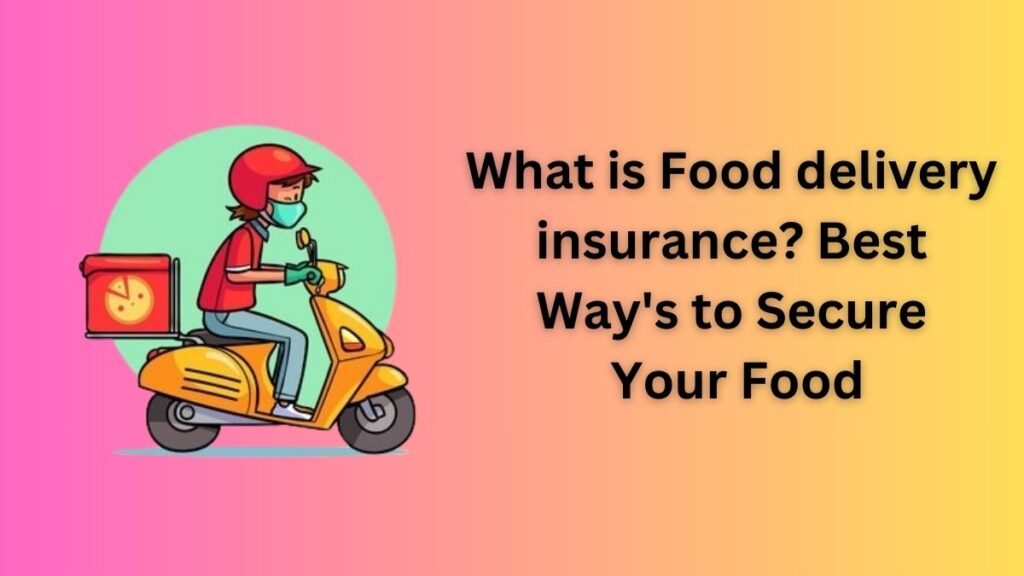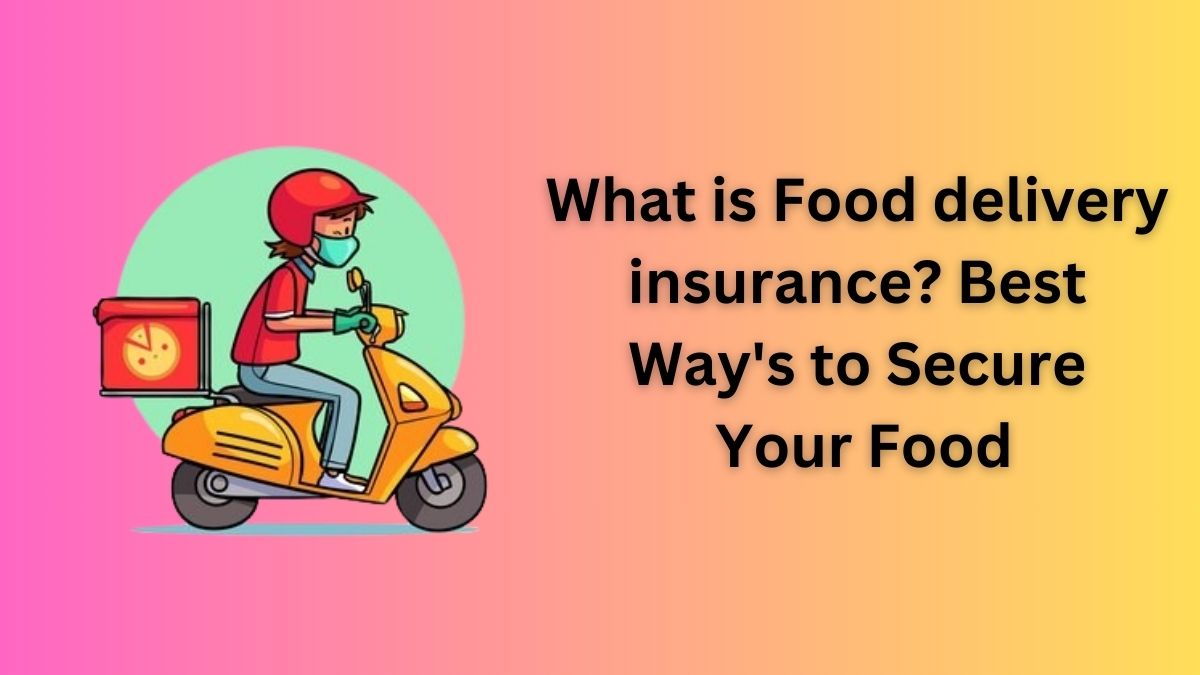In today’s fast-paced world, the demand for food delivery services is skyrocketing. With this surge in demand comes the need for comprehensive insurance coverage tailored specifically for food delivery businesses.

Food delivery insurance plays a pivotal role in mitigating risks inherent in the industry, ranging from accidents during deliveries to food-related incidents. By understanding the nuances of this specialized insurance, businesses can safeguard their operations, protect their assets, and ensure the well-being of their employees and customers.
Understanding Food Delivery Insurance
Running a food delivery business entails various risks, both expected and unforeseen. Food delivery insurance serves as a safety net, providing coverage against liabilities that may arise during the course of operations.
From accidents involving delivery vehicles to instances of food contamination, the scope of coverage offered by food delivery insurance is extensive. By comprehensively addressing these risks, businesses can minimize financial losses, maintain their reputation, and uphold their commitment to safety and quality.
Why Food Delivery Insurance Matters
The significance of food delivery insurance cannot be overstated in today’s competitive marketplace. Beyond mere legal requirements, insurance serves as a proactive measure to protect businesses from unforeseen circumstances.
Accidents, injuries, and property damage are not uncommon in the food delivery industry, making insurance coverage indispensable. Moreover, food delivery insurance instills confidence among stakeholders, including customers, employees, investors, and regulatory authorities, by demonstrating a commitment to safety, responsibility, and professionalism.
Types of Coverage
Food delivery insurance encompasses a range of coverage options tailored to the unique needs of the industry. Liability insurance, for instance, shields businesses from third-party claims for bodily injury or property damage. Commercial auto insurance provides coverage for vehicles used for business purposes, including delivery vehicles.
Product liability insurance, on the other hand, safeguards against claims related to foodborne illnesses or injuries caused by delivered food. Additionally, workers’ compensation offers benefits to employees injured on the job, including delivery drivers.
Navigating the Insurance Landscape
Choosing the right insurance policy for your food delivery business can be daunting. Factors such as risk assessment, customized policies, and claims handling process must be carefully considered. Conducting a thorough risk assessment is the first step towards identifying potential hazards and liabilities specific to your business.
This enables you to determine the type and level of coverage needed to adequately protect your operations. Furthermore, seeking insurers that offer customized insurance solutions tailored to the needs of food delivery businesses is essential.
By navigating the insurance landscape with diligence and foresight, businesses can secure the necessary coverage to safeguard their operations and thrive in the competitive food delivery industry.
Types of Coverage
Food delivery insurance encompasses various types of coverage, including:
- Liability Insurance: Protects against third-party claims for bodily injury or property damage.
- Commercial Auto Insurance: Covers vehicles used for business purposes, including delivery vehicles.
- Product Liability Insurance: Shields against claims related to foodborne illnesses or injuries caused by delivered food.
- Workers’ Compensation: Provides benefits to employees injured on the job, including delivery drivers.
Navigating the Insurance Landscape
Choosing the right insurance policy for your food delivery business can be daunting. Here are some factors to consider:
Risk Assessment
Conduct a thorough risk assessment to identify potential hazards and liabilities specific to your business. This will help you determine the type and level of coverage needed.
Customized Policies
Seek insurers that offer customized insurance solutions tailored to the needs of food delivery businesses. Look for policies that address your unique risks and provide adequate coverage limits.
Claims Process
Evaluate insurers based on their claims handling process. Opt for insurers known for their efficiency, transparency, and responsiveness in handling claims.
Must Read:-
- What Is Critical Illness Insurance? Best Way’s to Cover Unexpected in 2024
- 5 Reasons Why Direct Auto Insurance Is Your Ultimate Protection | Best Way’s to Pay Auto Insurance in 2024
- 5 Reasons Why Direct Auto Insurance Is Your Ultimate Protection | Best Way’s to Pay Auto Insurance in 2024
Food Insurance related [FAQs]
Q1. What does food delivery insurance cover?
Food delivery insurance typically covers liabilities arising from accidents, property damage, foodborne illnesses, and injuries related to delivered food.
Q2. Do I need insurance if I use third-party delivery platforms?
Yes, even if you rely on third-party delivery platforms, it’s essential to have your own food delivery insurance to ensure comprehensive coverage for your business.
Q3. How much does food delivery insurance cost?
The cost of food delivery insurance varies depending on factors such as the size of your business, coverage limits, location, and claims history.
Q4. Can I add additional coverage to my policy?
Yes, many insurers offer customizable policies that allow you to add additional coverage options based on your specific needs and preferences.
Q5. What steps can I take to reduce insurance premiums?
Implementing safety protocols, providing driver training programs, and maintaining a clean claims history can help lower insurance premiums.
Q6. How do I file a claim with my insurance company?
To file a claim, contact your insurance provider promptly and provide all necessary documentation, such as accident reports and medical records.
Conclusion
In the competitive landscape of the food delivery industry, protecting your business is paramount. Food delivery insurance offers peace of mind and financial security, allowing you to focus on what matters most: delivering exceptional service to your customers.
These policies should address your unique risks and provide adequate coverage limits to mitigate potential losses. Additionally, evaluating insurers based on their claims handling process is crucial. Opt for insurers known for their efficiency, transparency, and responsiveness in handling claims, ensuring a seamless experience in the event of an incident.
